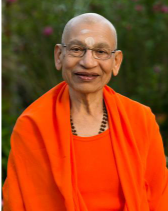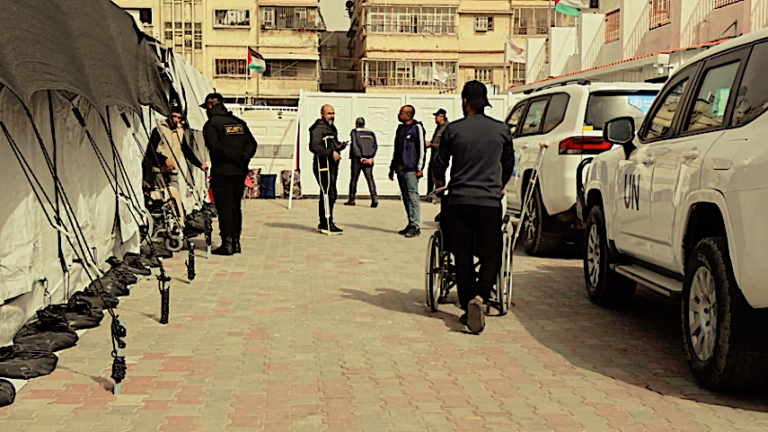
Spirituality

By Swami Viditatmanand Saraswati*
Give up anxiety of karmaphala, the results of actions
It is necessary to note and understand the grace of īśvara that is showering upon us every second. It is not a matter of belief that īśvara graces us; but, it is a matter of understanding. Scriptures tell us that īśvara resides in our body in the form of many devatās. Agni is the devatā of speech. We can speak when we have Agni’s grace. It is īśvara’s grace that we are able to hear. It is īśvara’s grace that we are able to chew. It is only īśvara’s grace that we can do anything and everything. However, we have no value in all that. It is a miracle that there are so many processes going on in our body. Our life is also a miracle. Generally, when we see a phenomenon for the first time, we think of that as a miracle. However, what is happening in the entire world or in our body is really a miracle. If we can understand this reality, even the smallest events happening in life would become a means of happiness and then, there is no need for anything extravagant. There are so many things in life that we can enjoy all. Wow, what a phenomenon that I am able to speak? What a joy that I am able to walk? What a wonderful thing it is that I am able to see, hear, smell, taste, touch! Thus, we can enjoy common activities in our daily life. However, our mind is not present to enjoy all that. It is wandering somewhere else!
This shows that our mind is not tranquil. Our mind is disturbed. What is that disturbance in our mind?
Will I get karmaphala? Or will I get the expected karmaphala? Bhagavāna says, “You leave the worry about karmaphala to me and enjoy what you have. I am the one who takes care of what you want to acquire and I am the one who protects what you possess. Therefore, you do not need to worry about them.”
Also read: Spiritual Discourses: Perform karma with the spirit of yoga
If we think a little about our life, we will see that only īśvara has taken care of us. There is no reason to fear that īśvara will suddenly stop taking care of us. If we are thinking that we ourselves acquire what we need and protect what we have, then also it is īśvara who provides the capacity to attempt that. When we achieve something due to our efforts, it is īśvara who gives us the strength to put in the efforts, provides the opportunity and ultimately gives the results of our efforts. Sometimes when we suddenly get something pleasurable, we feel fortunate. This fortune is the grace of īśvara. I needed to meet someone and he just appeared in front of me! We wish someone did not see us on a certain occasion and we can actually avoid seeing that person! When we get such miraculous results, it is only the grace of īśvara. Whatever happens every moment in our life is the grace of īśvara. And it is a great grace of īśvara that certain events do not occur in life. What we have achieved in life is the grace of īśvara and what we have not been able to achieve is also the grace of īśvara. That is because we cannot determine that it would be to our advantage to achieve what we have not achieved.
Thus, śraddhā (faith) and bhakti (devotion) are inevitable in karma yoga. If they are not present, it is not possible to perform karma with the attitude of yoga. Therefore, there is no difference between karma yoga and bhakti yoga according to Bhagvad Gītā. Karma yoga is bhakti-yoga only. Íśvara has given us a lot of materials so that we can achieve success. We should use that material to do karma to please īśvara. Mā te saṅgo’stvakarmaṇi. You never identify with inaction. It is not right that you do not perform any karma if you do not want any compensation. You perform an action not for achieving something but because you are given the opportunity.
The giver of the results of action is īśvara. Whatever results are achieved by performing karma should be accepted as īśvara’s prasāda. To have the attitude of prasāda in the results of karma is called prasādabuddhi. The attitude at the time of performing karma should be of pleasing īśvara and of offering the karma to īśvara. I have received karma due to īśvara’s directive. I am the sevak of īśvara. Therefore, I am doing this karma to please him. When we perform karma with such īśvarārpaṇabuddhi, our mind meditates upon īśvara. And, when we receive the results of karma, then also our mind meditates upon īśvara because we have the attitude of īśvara’s prasāda.
We may be able to maintain īśvarārpaṇa buddhi with some effort and we may not have much difficulty in maintaining prasādabuddhi as long as we get the expected results. However, when we get unpleasant results – a headache when going for an examination, death of the only son, diagnosis of an incurable disease such as cancer – how can we call that prasāda?
Yes, it is true that when we get a result that is apparently unpleasant, prasādabuddhi such as “this is prasāda of īśvara” will not arise. However, how can we decide that what we have received is not beneficial for us, and something else would have been more beneficial for us than this? Like a stumble prevents a fall, small trouble could have avoided a major problem. When we are complaining about what is happening, how can we be certain that if what has not happened would happen, that would have been beneficial for us? Do we even have that much knowledge to decide what is beneficial for us and what is not? We do not know that īśvara is doing injustice or showing partiality by not doing what we like or expected. We do not know what the long-term impact of the recent event would be. We are saying something has gone wrong based on our present narrow-minded perspective.
In this subject matter, there is a famous story about a king and his minister. A minister of a king had a habit that whenever anything happened, he would say, “Whatever īśvara does is for our wellbeing.” Once it so happened that the king was peeling sugar cane for his young son. He used the knife a bit forcefully and his finger got cut off. The minister was present there. Habitually, he said, “Whatever īśvara does is for our wellbeing.” Hearing this, the king got angry. “My finger got cut off. Is he seeing something good in it?” The king had the minister imprisoned. Then also, the minister said, “Whatever īśvara does is for our wellbeing.”
Some days later, the king went on a hunting trip with his elite soldiers. While hunting in the forest, the king happened to see a deer farther away. The king followed that deer. The deer was running very fast and the king was also following it on his speedy horse. While following the deer, the king went very far into the forest and his retinue was left behind. He could not catch the deer and he ended up alone in the dense forest. He got tired and laid down to rest under a tree and quickly fell fast asleep. After some time, he heard some uproar and woke up. He saw that the tribal people from the forest had surrounded him. They captured him and took him away to their village. There was an elaborate homa going on. They were supposed to sacrifice a man who is complete in all ways for the homa. The king looked good in every way, therefore, they had captured him for the sacrifice.
The next morning, the king was given a bath. The tribal people dressed him up nicely and brought him near the altar of the homa. The paṇḍitajī raised his sword while chanting mantras and he happened to see the king’s finger. The sword remained in the air and the paṇḍitajī said that the king had a truncated finger and so, the king was not eligible for the sacrifice. Therefore, the king was freed up. After some days while searching for his way back, the king returned to his kingdom. In his court, the king shared his story in detail. He had his minister brought back from prison and accepted that “the truncating of my finger was a good thing īśvara had done because of which my sacrifice was avoided. However, I am not clear what was good about your imprisonment.”
“Maharaj, if you did not put me into the prison, I would have been with you in the forest. The tribal people would have captured me along with you. Seeing your truncated finger, they would have freed you up and selected me for the sacrifice! Therefore, it was good that your finger got truncated and it was also good that I was jailed.”
*Swami Viditatmananda Saraswati has been teaching Vedānta Prasthānatrayī and Prakaraṇagranthas for last 40 years in Ahmedabad, Gujarat. Throughout the year, he conducts daily Vedānta discourses, accompanied by retreats, and Jñāna Yajñas on Vedānta in different cities in India and in foreign countries.





